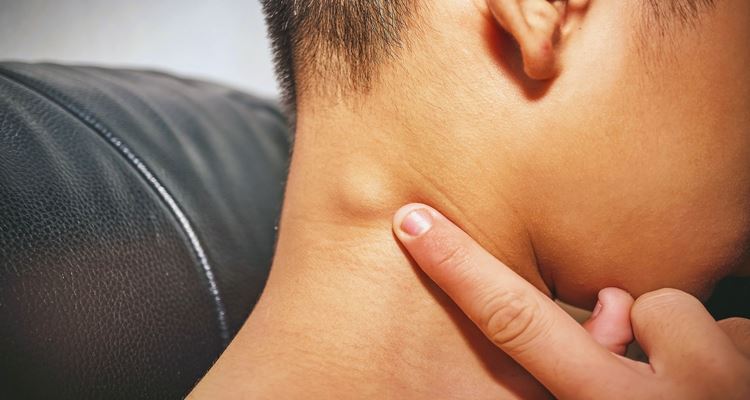These are the causes of swollen lymph nodes and their symptoms.
LYMPH NODES – Here are some important things to know about swollen lymph nodes (also known as lymph glands) and what are the signs and symptoms of this.
The lymphatic system has lymph, a clear fluid that circulates through it and the lymph nodes are the ones filtering the lymph. It also stores white blood cells that help fight foreign microorganisms like viruses or bacteria that would attempt to enter the body preventing infection.

These foreign objects are trapped and filtered in the lymph glands. It appears in many areas of the body underneath the skin and these areas include:
- armpits
- under the jaw
- above the collar bone
- on either side of the neck
- on either side of the groin
But how do these get swollen?
The swelling is called Lymphadenopathy and below are the symptoms that may come along with the swelling:
- coughing
- fatigue
- fever
- chills
- runny nose
- sweating
As for the swelling in the groin, it might cause pain when walking or bending over. The swelling is actually caused by an infection due by bacteria or viruses. And this is an indication that there is something wrong with your body.
Before being diagnosed, your attending physician may examine the size, the tenderness, consistency (either hard or rubbery), matting, and location because the area may specify diseases associated with this).
Some symptoms include tenderness and pain. The swelling could be the size of a pea, a kidney bean, or a size larger than the lymph glands. Other symptoms may depend on the causes.
Apart from the above-stated signs, the general swelling may indicate certain infections like HIV or mononucleosis or an immune system disorder like lupus or rheumatoid arthritis.
According to an article from Mayo Clinic, the following factors are the signs that you should seek medical care or see your doctor:
- it appeared for no apparent
- it continues to grow
- it’s been present for two to four weeks already
- it appears with persistent fever, night sweats, or weight loss that you can’t explain
READ ALSO:
- Asymmetrical Face – Reasons Why Your Face Is Not Symmetrical
- Eczema – What Are The 7 Different Types Of Eczema?
What can you say about this? Let us know!

